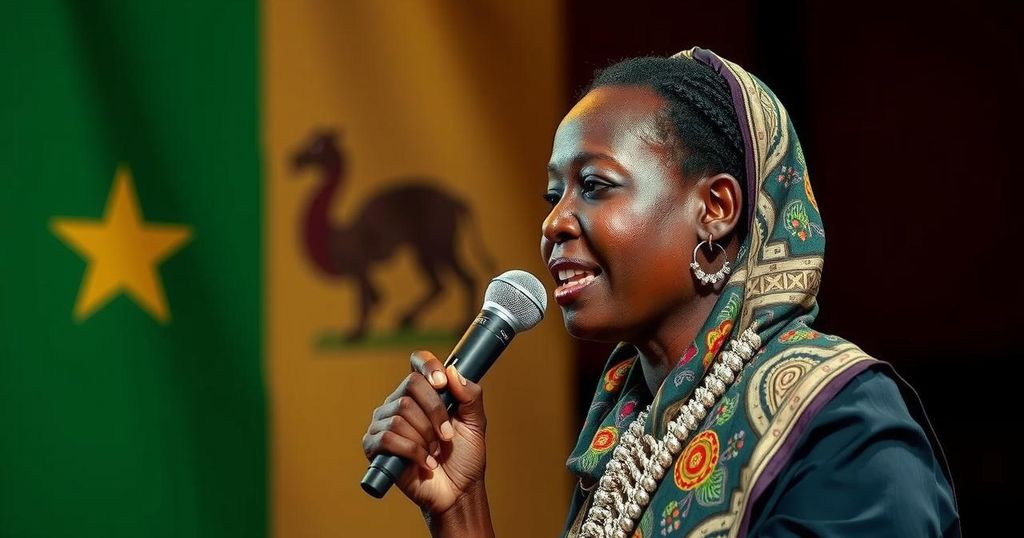Namibia Votes for First Female Leader: A Historic Presidential Election
Namibia’s presidential election held on November 27, 2024, features Netumbo Nandi-Ndaitwah, aiming to be the first female president. As the current vice president and leading candidate, she confronts rising public frustration over economic conditions, particularly high youth unemployment. The election’s outcome may signal substantial political change, reflecting a growing demand for reform and increased representation in leadership.
On November 27, 2024, Namibia held a pivotal presidential election, where the primary candidate is 72-year-old Netumbo Nandi-Ndaitwah, the current vice president of the ruling South West Africa People’s Organization (SWAPO). Leading the race after early voting results, Nandi-Ndaitwah could make history as Namibia’s first female president, amidst growing public dissatisfaction toward SWAPO due to persistent economic challenges, including high unemployment rates, particularly among the youth. The election represents a significant moment for both inspired advancements in gender representation in leadership and disillusionment with long-standing governance, reflecting regional electoral trends.
Despite SWAPO’s historical dominance since Namibia’s independence from apartheid South Africa in 1990, the party’s popularity has waned, signifying a potential shift in the political landscape. Approximately 1.4 million Namibians are registered to vote, with Nandi-Ndaitwah focusing her campaign on job creation and addressing women’s rights issues, such as equal pay and healthcare accessibility. Challenges faced include her ambitious goal of creating over 500,000 jobs at an estimated cost of 85 billion Namibian dollars ($4.7 billion), which critics deem unrealistic. Given the socio-economic backdrop and recent electoral changes in neighboring countries, this election holds significant implications for Namibia’s future.
Namibia, a nation with a population just over 3 million, is a former German colony that transitioned to South African control following World War I. Independence brought SWAPO to power, a party that led the struggle against apartheid. With 34 years at the helm, SWAPO faces growing discontent from citizens grappling with high unemployment rates, which stand at 20% among youths, alongside economic hardship. The unprecedented candidacy of Nandi-Ndaitwah as a likely frontrunner for the presidency marks a critical juncture in Namibian politics and gender representation across Africa. The current political environment mirrors tumultuous changes seen in regional elections, prompting a sense of urgency within the electorate for fundamental change.
As Namibia approached its presidential election, the prospect of a female leader in Netumbo Nandi-Ndaitwah emerged as both historic and indicative of shifting political sentiments in the country. With a backdrop of economic struggle and high youth unemployment, the election not only offers a possibility for groundbreaking representation but also calls for a reassessment of the nation’s leadership approach amidst a climate of dissatisfaction with the status quo. The upcoming results will certainly be watched closely, not only within Namibia, but across the broader African continent.
Original Source: apnews.com




Post Comment